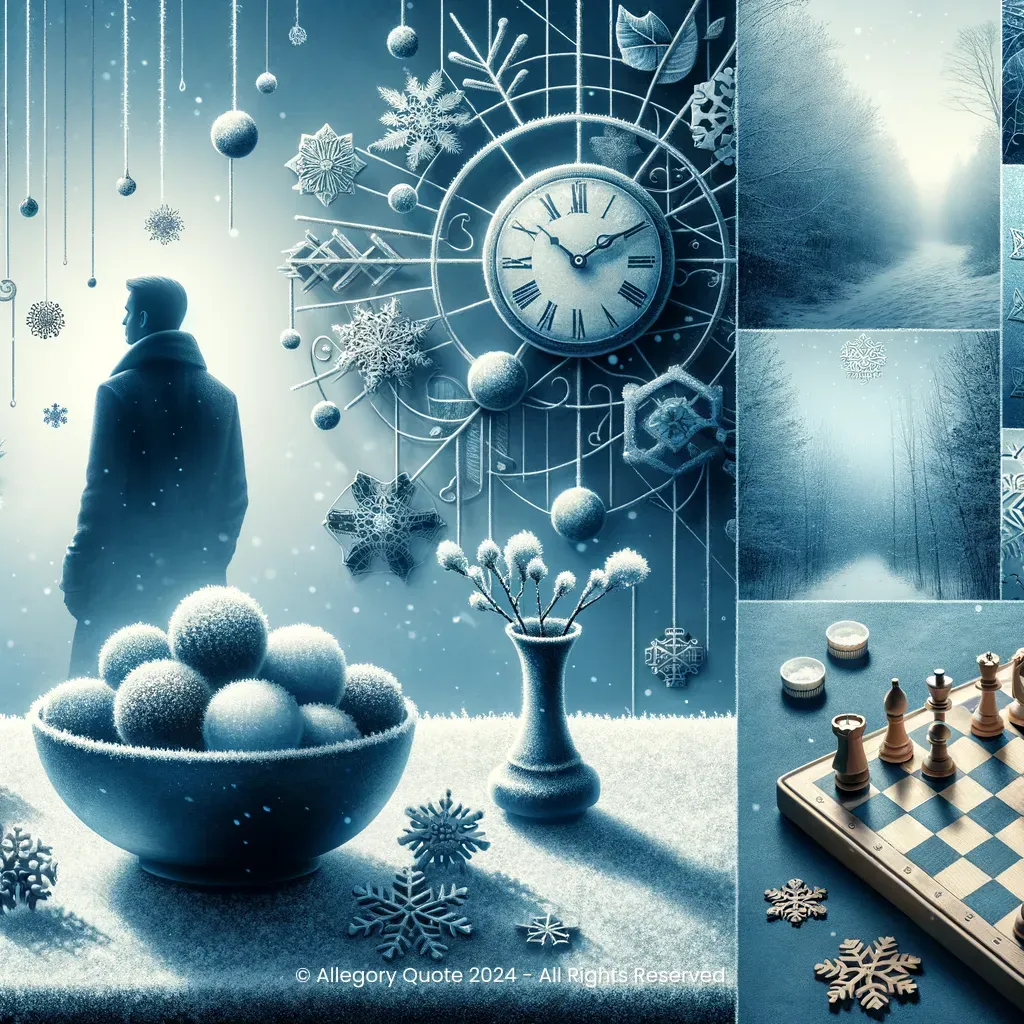Revenge is a dish best served cold

0
0
0
0
- Meaning
- This phrase suggests that revenge is more potent when executed with thoughtfulness and a degree of detachment, rather than immediate emotional response. Philosophically, it resonates with themes of patience, strategy, and the contemplation of justice versus vengeance.
- Allegory
- The image encapsulates the essence of the phrase by visually representing the concept of patience and coldness in revenge. The winter landscape symbolizes stillness and contemplation, while the watchful figure illustrates the careful strategizing aspect of seeking revenge. The chessboard suggests that revenge is a game of strategy, not impulse. Overall, the colors and elements work together to evoke a sense of calm and deliberate action.
- Applicability
- In personal life, this phrase can be a reminder to approach conflicts and grievances judiciously rather than reacting impulsively. It encourages individuals to take a step back and assess the situation before seeking retribution, promoting emotional intelligence and inner peace.
- Impact
- The phrase has impacted literature and film, often appearing in discussions around vengeance and justice. It has influenced themes in storylines, contributing to complex character motivations and moral dilemmas about revenge and its consequences.
- Historical Context
- While the exact date is uncertain, the phrase likely springs from 18th-century European literature, emphasizing notions of honor and revenge. The context of its origin reflects the societal norms surrounding dueling and retribution prevalent in that era.
- Criticisms
- Criticism sometimes arises around the concept of cold revenge, with arguments suggesting it may foster ongoing resentment or unforeseen complications. Critics argue that it may perpetuate cycles of vengeance, undermining peaceful resolutions and personal growth.
- Variations
- Variations exist across cultures, such as the Middle Eastern saying 'He who seeks revenge must dig two graves.' This emphasizes the self-destructive nature of revenge, differing from the colder, calculated approach suggested in the original phrase.
-

Keep your friends close, but your enemies closer.
-

It's not personal, Sonny. It's strictly business.
-

You come into my house on the day my daughter is to be married and you ask me to do murder, for money.
-

I'm gonna make him an offer he can't refuse.
-

I want you to use all your powers and all your skills. I don't want his mother to see him this way.
-

In my experience, there is no such thing as luck.
-

If you can’t say something nice, don’t say nothin’ at all.
-

The two most powerful warriors are patience and time.
-

As you proclaim peace with your lips, be careful to have it even more fully in your heart.
-

After me, the flood.
-

I have not yet begun to fight!
No Comments